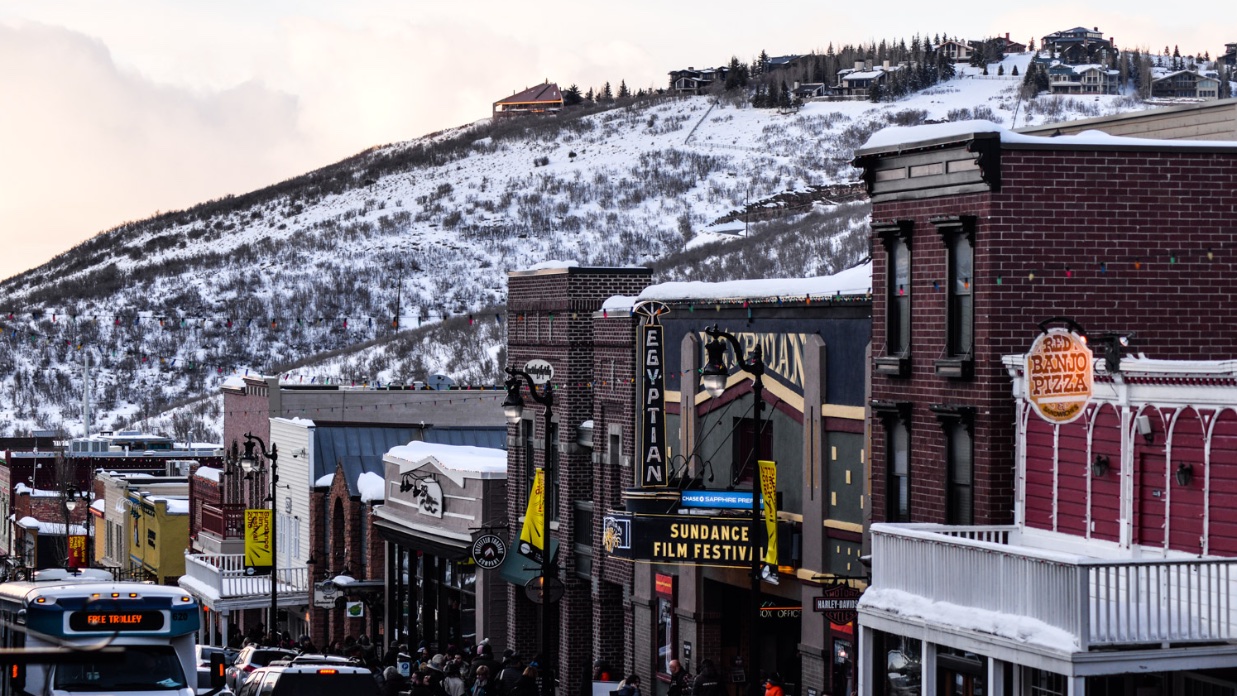 Back to selection
Back to selection
The Sundance Question: What Hidden Part of Your Film Are You Most Privately Proud of, and Why?
 Photo: Kelsey Doyle, courtesy Sundance Institute.
Photo: Kelsey Doyle, courtesy Sundance Institute. Each year Filmmaker asks all the incoming feature directors at Sundance one question. (To see past years’ questions and responses, click here.)
This year’s question:
Whenever directors watch their own films, they always do so with the knowledge that there are moments that occurred during their production — whether that’s in the financing and development or shooting or post — that required incredible ingenuity, skill, planning or just plain luck, but whose difficulty is invisible to most spectators. These are the moments directors are often the most proud of, and that pride comes with the knowledge that no one on the outside could ever properly appreciate what went into them.
So, we ask: “What hidden part of your film are you most privately proud of and why?”
(Check back daily during the festival — new answers are uploaded on the day of each film’s premiere.)
“Roll a Hospital Bed Down the Busiest Intersection of Koreatown”: Director Justin Chon | Ms. Purple
“Filming a Record of the Voyage on a Clunky SVHS Camera”: Director Alex Holmes | Maiden
“Harvey Weinstein Has Been Living in My Head”: Director Ursula Macfarlane | Untouchable
“How’s Fitzcarraldo Going?”: Director Jennifer Kent | The Nightingale
“Designing an Actual Late Night Talk Show Set”: Director Nisha Ganatra | Late Night
“It Was a Huge Relief to Find a Location”: Director Jacqueline Olive | Always in Season
“Everyone Would Break Out in Violent Shivering”: Director Alistair Banks Griffin | The Wolf Hour
“A Mock Basic Training Camp High Up in the Andes Mountains”: Director Alejandro Landes | Monos
“The Story Starts Talking to You”: Director Ritesh Batra | Photograph
“After Shooting a Scene, Male Porn Actors Bump Elbows”: Director Lucas Heyne | Mope
“We Needed to Shield These Kids”: Director Abe Forsythe | Little Monsters
“Time will Heal the Filmic Regrets and Lost Ambitions”: Director Joanna Hogg | The Souvenir
“I Had to Grow Up”: Director Hepi Mita | MERATA: How Mum Decolonized the Screen
“I Lost My DP To a Fancier Job”: Director Hannah Pearl Utt | Before You Know it
“We as People Have Agency to Change Things”: Director Jacob Aaron Estes | Relive
“We Did as Many Long Takes as Possible”: Director Julius Onah | Luce
“Whenever You Build a World You Open Yourself Up to It”: Director Sophie Hyde | Animals
“Documentary Felt Messier to Me, In a Good Way”: Director Liza Mandelup | Jawline
“We Had Less than Two Hours”: Creator, Writer and Star Danielle Uhlarik | Bootstrapped
“Creative Solutions for Blocking and Information”: Director Patrick Brice | Corporate Animals
“The Balanced Amount of Male and Female Crew Working Together”: Directors Bert&Bertie | Troop Zero
“The Miracle of Securing the Prison Location”: Director Laure de Clermont-Tonnerre | The Mustang
“We Had Over 200 Special Effects”: Director Noble Jones | Tomorrow Man
